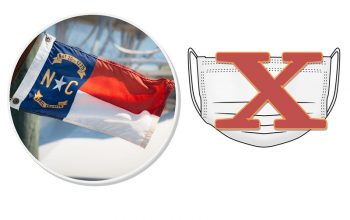by Gordon Jeremiah Berry
Traveling by airplane is stressful enough, especially when it comes to traveling internationally. Many know about those common sense things that are prohibited, such as firearms or knives. Yet, some food items are prohibited and the reasons for it are still somewhat unclear. 
What Foods Are Prohibited
Any and all food that you want to carry on the plane must be checked in the X-ray machine at the Transportation Security Administration (TSA) checkpoint. The food you bring through security must be wrapped or inside a container. This would mean you cannot send something such as an unwrapped hamburger through security. While most kinds of foods that you would want to bring onto the airplane are allowed through TSA checkpoints, there are some items that travelers are not allowed or advised to bring.
When wanting to carry food onto the plane, place them in your checked baggage, or ship them ahead of time to your destination.
The list of items TSA recommends you don’t bring through security includes: cranberry sauce, creamy dips, salsa, jams, maple syrup, salad dressing, sauces, and soups. Items that are liquids should be no more than 3.3 ounces. Those items would include such things as cologne, cheese spread, peanut butter, lotions, oils and vinegars, puddings, yogurts, water bottles, perfume, snow globes, wine, liquor, and beer. When carrying liquids, in general, you would want to go by what is called the 3-1-1 “Liquid Rule”. No more than just over 3 ounces of liquid, 1 quart size bag, and liquids must be stored in a quart-sized, clear, plastic, zip-top bag. 1 Per passenger for each of these rules upon boarding an airplane.
When Traveling from the United States
Many duty-free stores in the US airports offer the approved tamper-resistant liquids, but make sure that the duty-free shop places your items in the bag in the store. What is considered “Duty-Free” meaning, liquid purchases in containers that can be purchased in the US and have the required amount of liquid allowed for carry-on luggage.
If you have a connecting flight in Europe, Japan, or another international destination, US duty-free liquid purchases in containers larger than three ounces will not be permitted through security checkpoints because they will not be in the International Civil Aviation Organization (ICAO) approved tamper-evidence bag. Remember, this option may not exist for every airport, so check ahead of time. The best way to make sure you avoid any problems at the checkpoint is to wait until you reach your destination to purchase your duty-free items containing liquids.
When traveling internationally with a connection, it is best to buy your duty-free items on the last leg of your trip when you do not need to pass through any more security checkpoints.
Some countries such as Japan, does not use or accept the ICAO tamper-evident duty-free bag, so travelers changing planes in Japan for other international destinations should wait to purchase any liquid.
When Traveling to the United States
Certain items face an importation restriction, and this changes accordingly depending on worldwide ongoing concerns. Currently, there is an importation restriction where Kharpa Beetle is known to exist. Countries included are India, Pakistan, Saudi Arabia, and the United Arab Emirates. Travelers are even urged not to bring rice, soybeans, safflower seeds, and Cicer species (such as chickpeas).
The Agriculture Inspection Process starts with a Primary Inspection where the passenger deplanes and proceeds to passport control. Then passenger claims baggage, then a Customs and Border Protection (CBP) officer reviews customs documents and interviews the passenger, CBP agriculture K-9 team searches baggage area. If a CBP officer has a reason to believe or has found something that is not allowed entrance the passenger is returned to the agriculture inspection, there it is determined whether a passenger could be carrying a prohibited agriculture item. If something was found then you would go through a secondary inspection.
First, you would be interviewed with an agriculture specialist. The passenger is given an opportunity to surrender the agriculture item(s). Second, your baggage is screened. Third, it is determined if the passengers questioning or baggage X-ray show possible agriculture item(s). If the answer is no, nothing was found, the passenger is allowed to exit the airport. If the answer is yes, something was found, the fourth step is that the passengers baggage is hand searched. Fifth, if it is then determined, did the agriculture specialist find a prohibited agriculture item? If the answer is no, nothing was found, the passenger is allowed to exist the airport. If the answer is yes, something was found, the sixth step then is the item(s) seize of the prohibited item. Seventh, the agriculture specialist may impose a fine. Eight, the passenger and baggage are released and the passenger is allowed to exit the airport.
Why Such Laws?
Unfortunately, we live in a world where terrorism exists and laws sometimes will need to be created or adjusted to properly handle the concerns related to safety. Technology has advance to the point where liquids and other seeming harmless items could be use as explosives to harm others. Nitroglycerine is a chemical component that is colorless and could easily be mixed with liquids or jelly or cream like substances. This is the main reason why only small amount of liquids are allowed, not to mention the lesser of the problems with liquids are that they may leaking into bags, airport equipment and so on. When it comes to certain foods, the main reason is from the agricultural risk that may be involved.
Certain strains of bacteria, or bugs that effect certain plants and fruits, could be brought from country to country without restrictions that would ban such items from entering a country or exiting a country. So to avoid and possible fines or delays we would want to not bring fruit and vegetables, plants and Cut Flowers, Meat and Animal Products and also Live Animals. Please make sure you call your airline company ahead of time to make sure you know what you can and can’t bring. There is also a TSA app that you are able to download on your phone to put in each item you may have a concern about.
In conclusion, it doesn’t matter if we travel a short distance or around the world. The reflections and the reason for travel is that, we must travel because of our work. We must travel because of our educational needs. We must travel because of our need for recreation. Above all, we must travel because we love, and the greater things of this world work to separate us from the connections of it. We understand this, so we plan, prepare, and take a deeper look into the purpose of each of our trips, and hopefully, we will travel with as little worries as possible.
About the Author
Gordon Jeremiah Berry, is an avid reader and intense researcher. Mr. Berry looks for the deeper meaning behind all things. His favorite saying is “Love must always win out!”




One thought on “What Foods are Prohibited for International Travel and Why?”